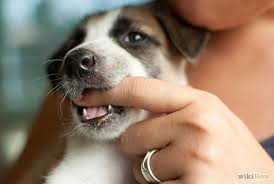bite
英 [baɪt]
美 [baɪt]
- vt. 咬;刺痛
- n. 咬;一口;咬伤;刺痛
- vi. 咬;刺痛
- abbr. 机内测试设备(Built-In Test Equipment)
- n. (Bite)人名;(匈)比泰
使用频率:

记忆方法
记忆单词“bite”可以通过关联其动作和形象。可以想象一个“b”形咬合的动作,就像一个小口子咬住了某个东西,从而联想到“bite”这个单词的含义是“咬”。这个记忆方法是利用了单词的拼写和动作形象来帮助记忆。
以上内容由AI生成, 仅供参考和借鉴
中文词源
bite 咬
来自PIE *bheid, 咬,撕,词源同bit, boat.
英语词源
- bite
-
bite: [OE] The Old English verb bītan came from prehistoric Germanic *bītan, which also produced German beissen and Dutch bijten. The short-vowel version of the base, *bit-, was the source of bit, beetle, and probably bitter, and is also represented in various non-Germanic forms, such as Latin fidere ‘split’ (from which English gets fission). Bait came via Old Norse from a causal usage, ‘cause to bite’, and passed via Old French into abet (the possible source of bet).
=> beetle, bit, bitter, fission - bite (v.)
- Old English bitan (class I strong verb; past tense bat, past participle biten), from Proto-Germanic *bitan (cognates: Old Saxon bitan, Old Norse and Old Frisian bita, Middle Dutch biten, Dutch bijten, German beissen, Gothic beitan "to bite"), from PIE root *bheid- "to split, crack" (see fissure).
To bite the bullet is said to be 1700s military slang, from old medical custom of having the patient bite a lead bullet during an operation to divert attention from pain and reduce screaming. Figurative use from 1891; the custom itself attested from 1840s. To bite (one's) tongue "refrain from speaking" is 1590s. To bite the dust "die" is 1750 (Latin had the same image; compare Virgil's procubuit moriens et humum semel ore momordit). To bite off more than one can chew (c. 1880) is U.S. slang, from plug tobacco. - bite (n.)
- c. 1200, from bite (v).
权威例句
- 1. Wendy popped in for a quick bite to eat on Monday night.
- 温迪周一晚上过来匆匆吃了点儿饭。
- 2. I struck it away and got a bite on my forearm.
- 我把它打跑了,但小臂被咬了一口。
- 3. Any dog bite, no matter how small, needs immediate medical attention.
- 被狗咬后,不管伤口多小,都必须立即就医。
- 4. There was a bite in the air, a smell perhaps of snow.
- 空气非常寒冷,似乎有雪的味道。
- 5. I had to bite back a yelp of surprise.
- 我只好强忍住,没惊叫出来。